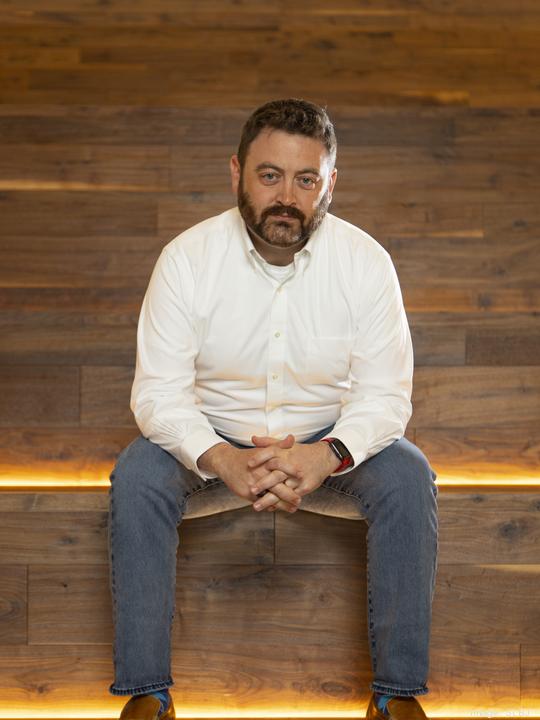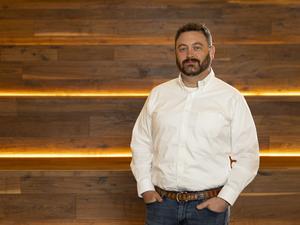
There’s a remark that came to mind for Benson Hill CEO Matt Crisp on Thursday.
As the St. Louis agtech startup prepared to go public, a colleague recently told him the milestone represented “a race to the starting line.”
It sums up Crisp’s approach to Benson Hill becoming St. Louis’ newest public company. It’s an achievement he says is less about celebrating what the company has accomplished so far and more about its ability to impact the future.
“We have a lot of fuel in the tank to go and execute the strategy and the objectives that we’ve got before us,” Crisp said.
Benson Hill on Thursday began trading on the New York Stock Exchange under the ticker “BHIL.” Its debut on the public market is the result of a business combination, which closed Wednesday, with special purpose acquisition company (SPAC) Star Peak Corp II. SPACs are created with the intent of raising capital through an initial public offering, then using the proceeds to acquire a private company and take it public.
Founded in 2012, Benson Hill, which describes itself as a "food tech company," is the developer of CropOS technology that uses data science, artificial intelligence and machine learning to help improve crop varieties with better accuracy, nutritional value and sustainability than traditional breeding methods. With more than 350 employees, it operates with two business segments: an ingredients division that develops and commercializes ingredients for the plant-based foods market and a fresh unit focused on producing healthier fresh produce.
Though Thursday was Benson Hill's first day as a public company, the SPAC that preceded it was already trading on the New York Stock Exchange. Its shares closed Wednesday at $9.87. On Thursday, trading for the first time under BHIL, it closed at $7.13 per share, down 27.8%.
While the first-day returns were rough, Crip said they expected some near-term volatility.
“We have a game plan that I’m really excited about," he said. "Those who have come to understand what our strategy represents for the food system and who have been with us on this journey to see how our team can execute on what we said, they’re behind us in a way that gives me optimism and confidence about where the stock will ultimately go.”
The SPAC transaction provides about $319 million in gross proceeds to Benson Hill, including $94 million of cash from Star Peak's former trust account and $225 million of cash from an oversubscribed and fully committed common stock private investment in public equity (PIPE) deal.
That’s financing Crisp expects will be used to accelerate the company's innovation pipeline, utilizing its technology to target additional crop varieties and develop new products.
“This capital helps us realize the commitment that we will invest in innovation in a manner that brings to bear those next generations of product opportunities and continues to help Benson Hill execute our mission, which is really to set the pace of innovation in food,” he said.
The proceeds also provides Benson Hill with the ability to strengthen its supply chain infrastructure. Crisp cited Benson Hill's recent acquisition of a soybean processing facility from Seymour, Indiana-based Rose Acre Farms as an example of the type of investment it could target.
While focused on its future, Crisp said Benson Hill will take time next week to celebrate its milestone of becoming a public company. Plans include ringing the bell at the New York Stock Exchange on Tuesday and a celebration in St. Louis on Thursday. Next Friday will be a day off for all of its employee, Crisp said.
it will be the second St. Louis-borne tech company to ring the bell at the stock exchange this month. Nerdy, the parent company of education technology startup Varsity Tutors, began trading Sept. 21 after completing a similar SPAC deal.
Benson Hill was initially based out of Research Triangle Park in North Carolina, but moved operations to St. Louis and has its headquarters located in a new building that opened in 2020 on the campus of the Donald Danforth Plant Science Center. Crisp said St. Louis has played an outsized role in its success, providing the facilities, talent and capital to propel the startup forward.
“This milestone and having reached it is a testament to those important ingredients — no pun intended — being located here in St. Louis,” Crisp said.











